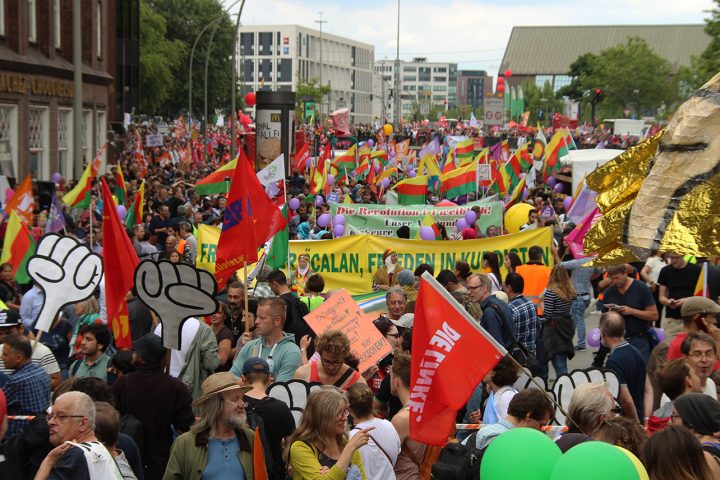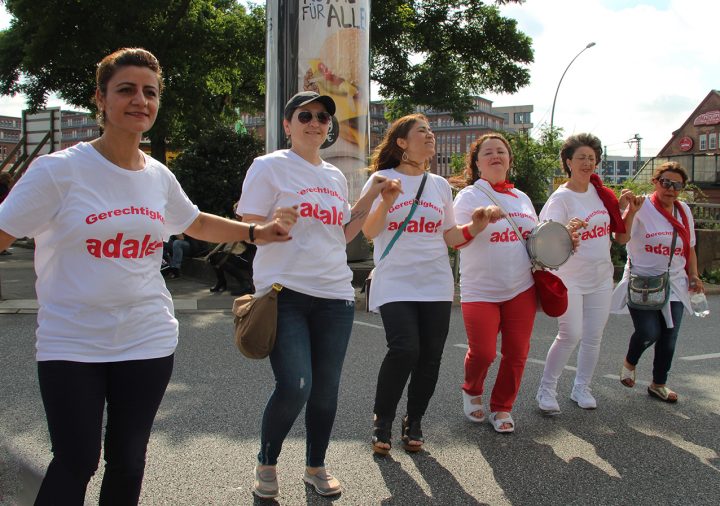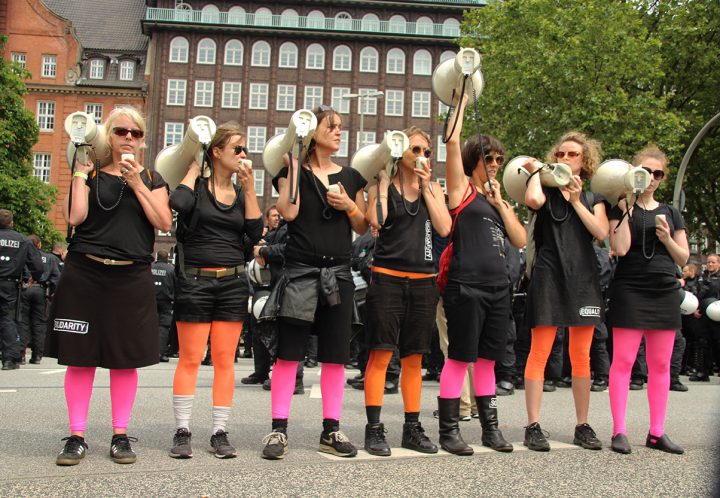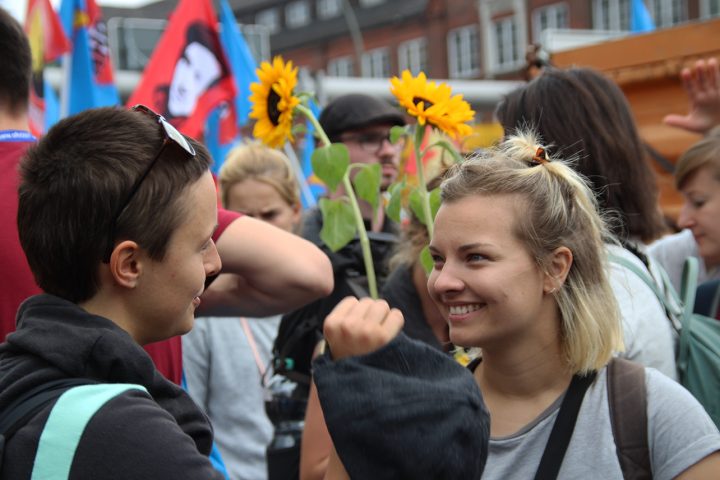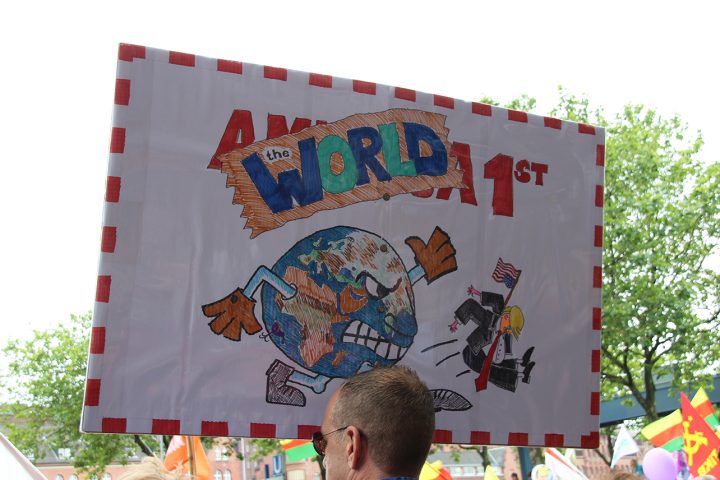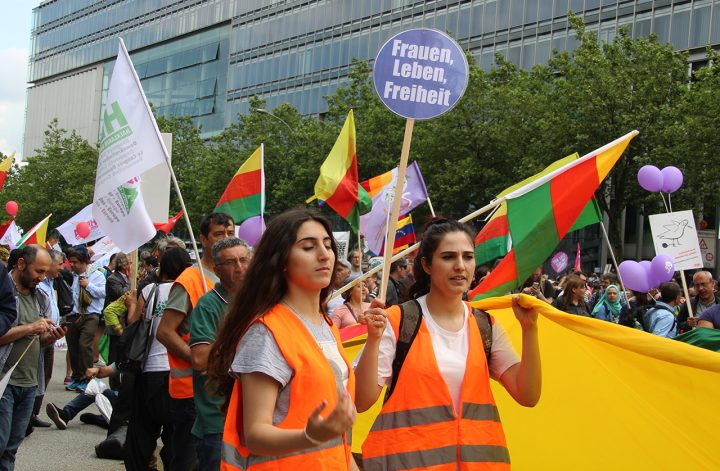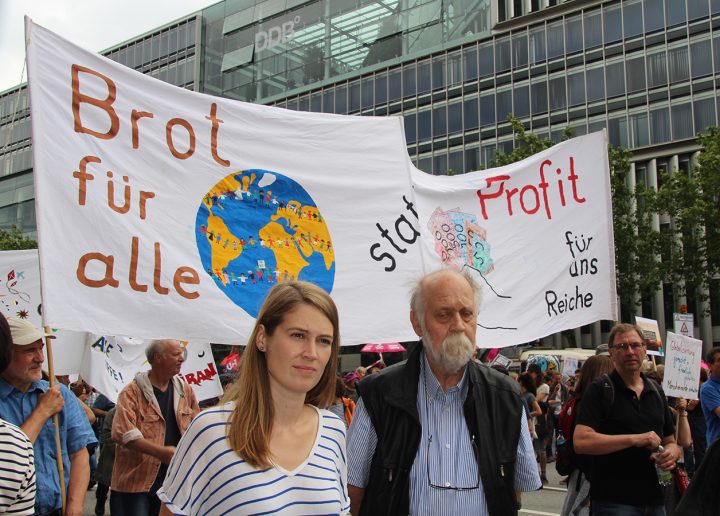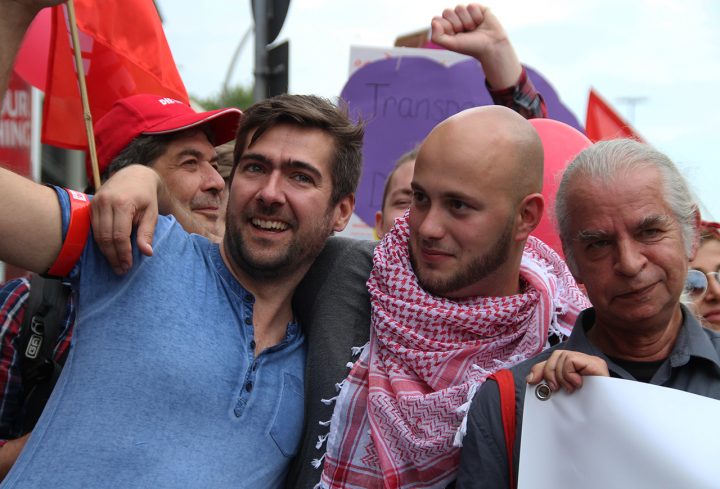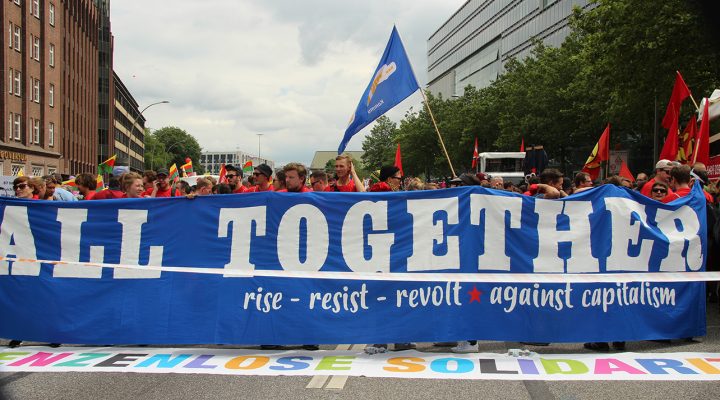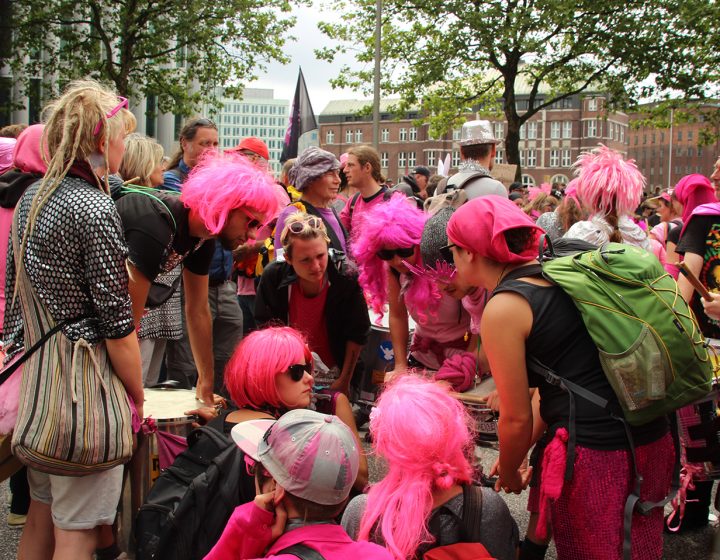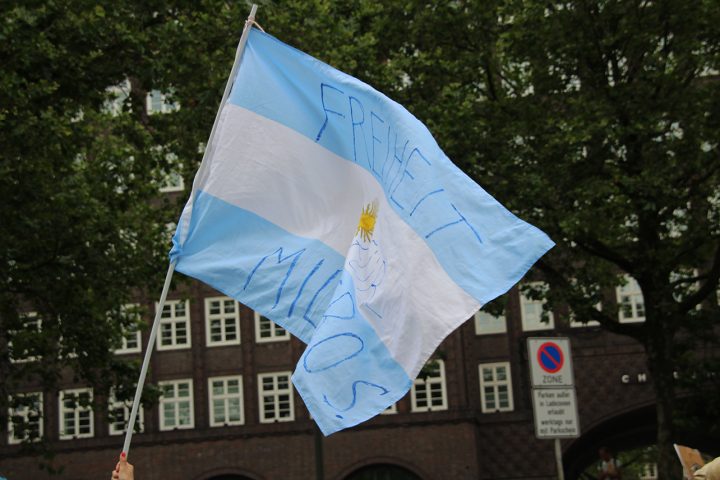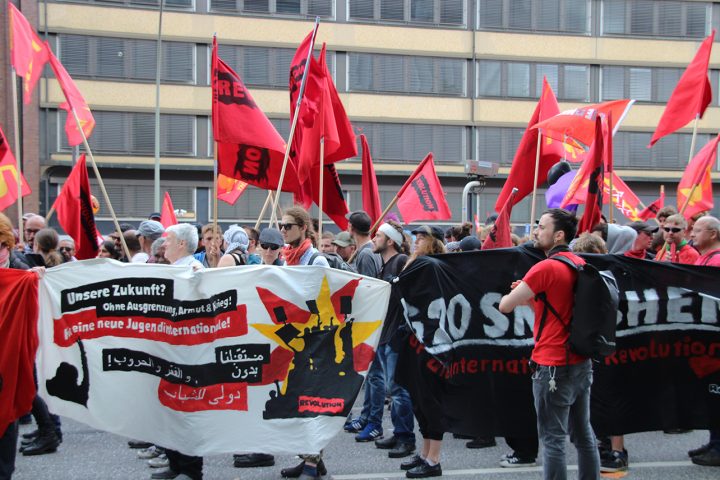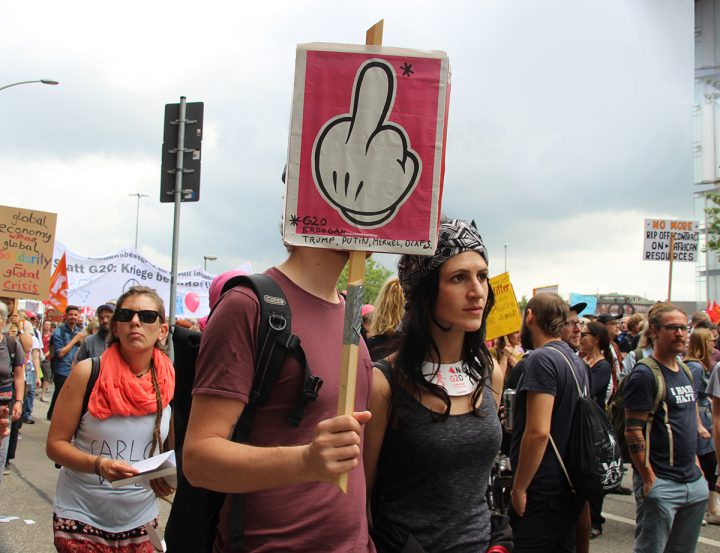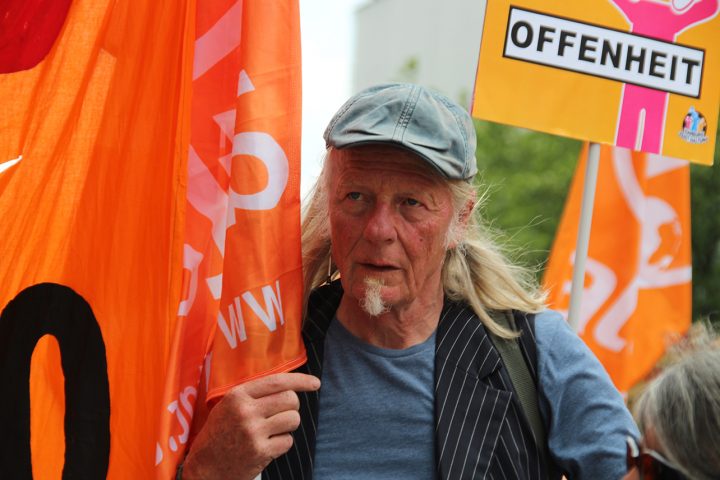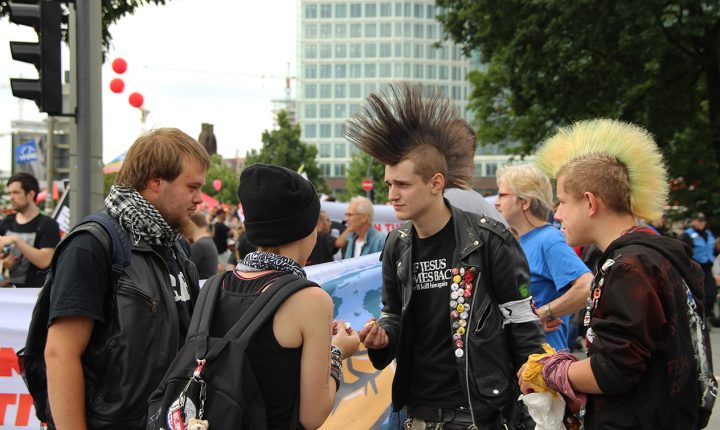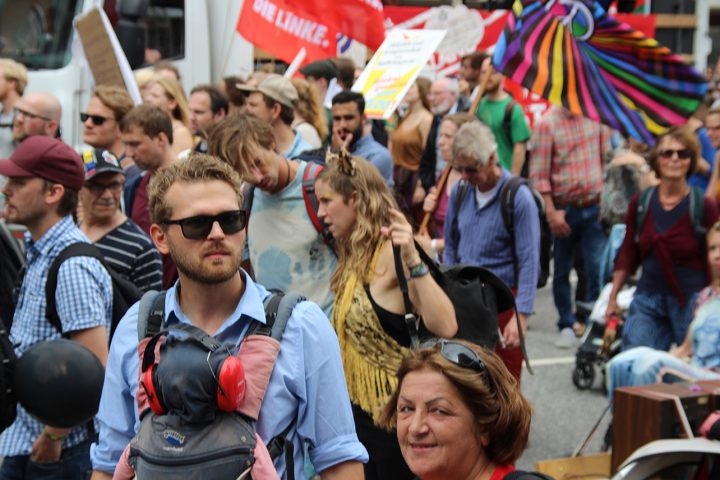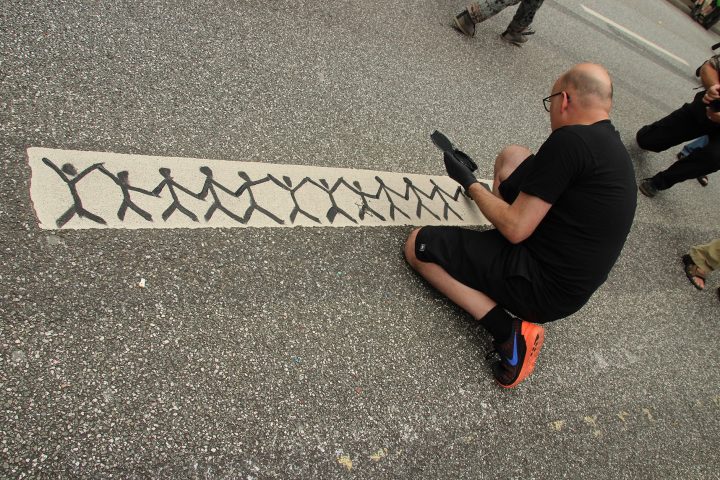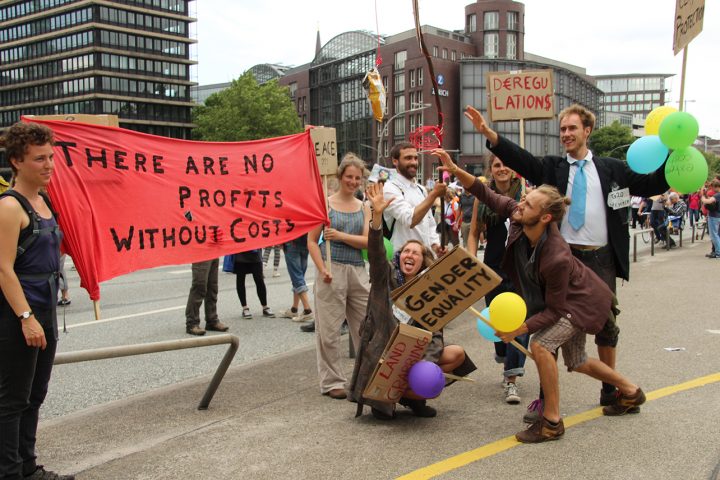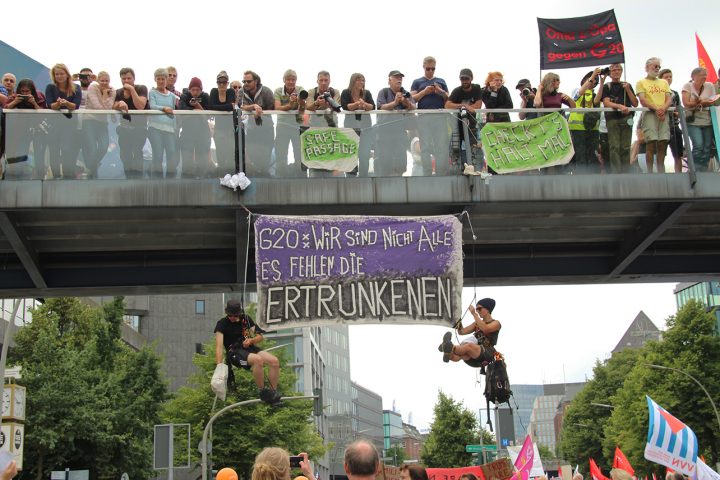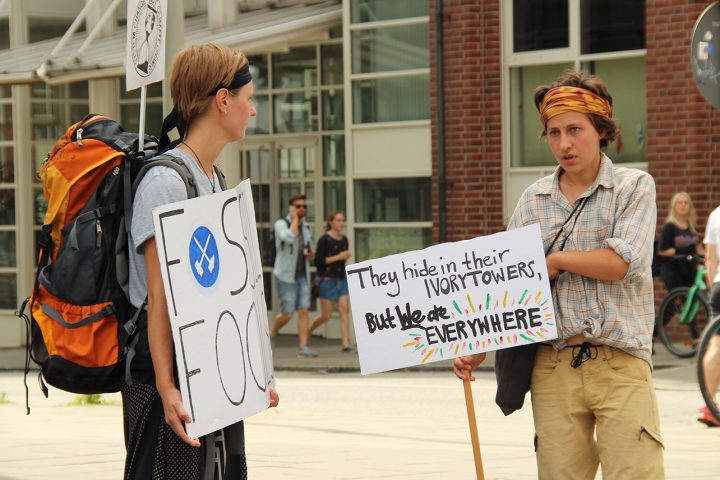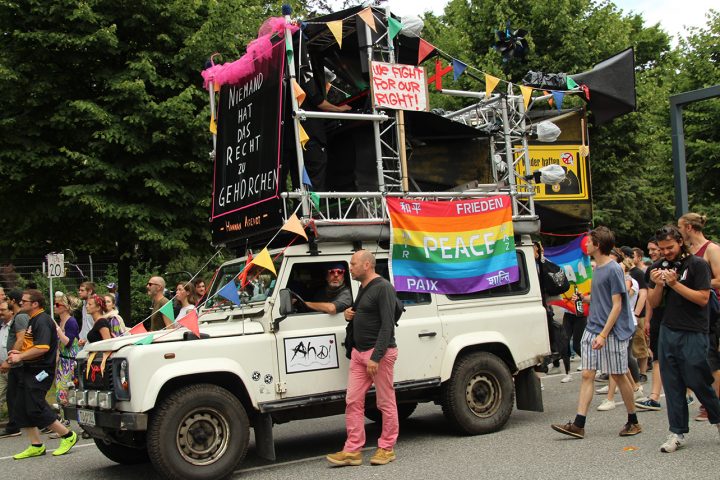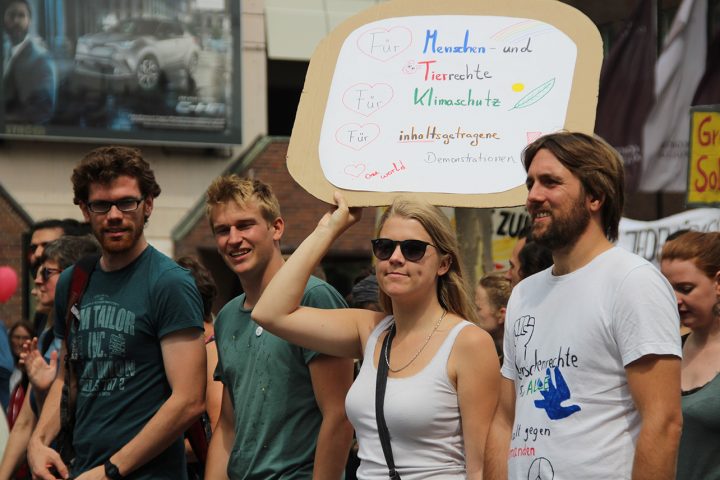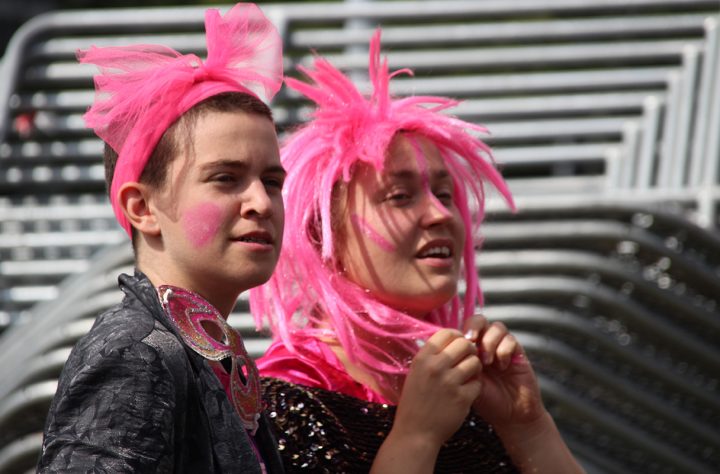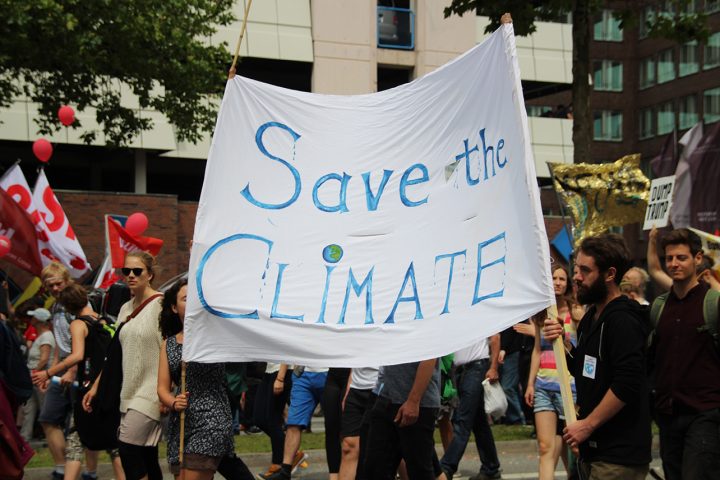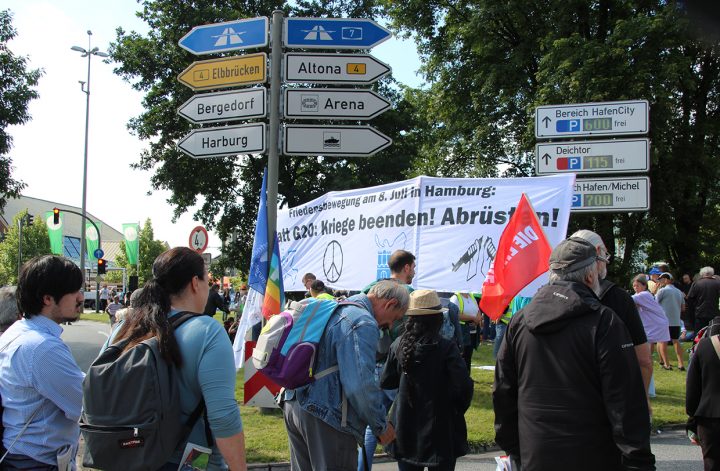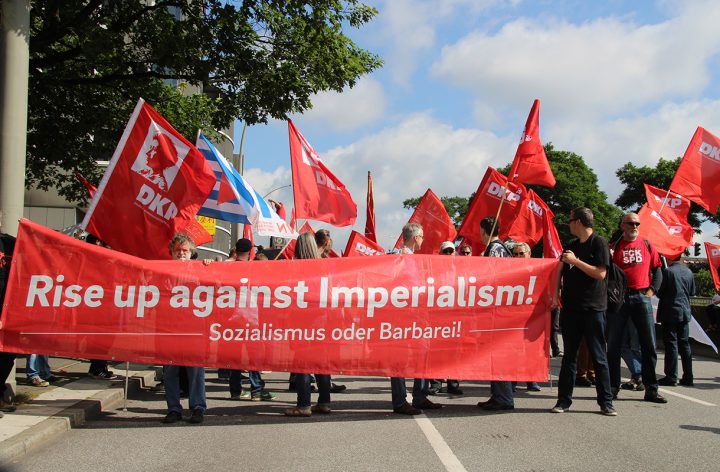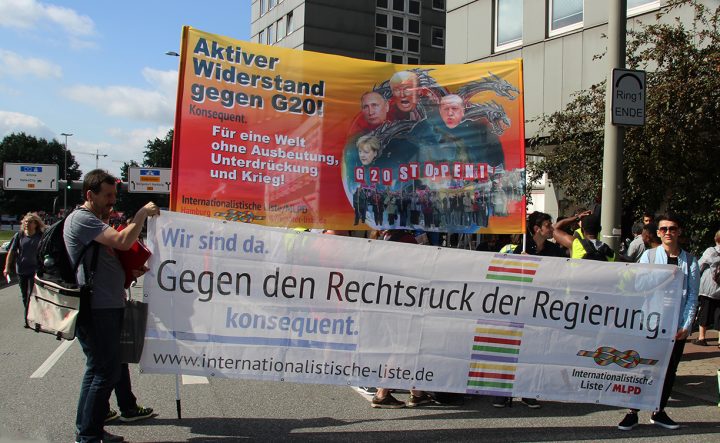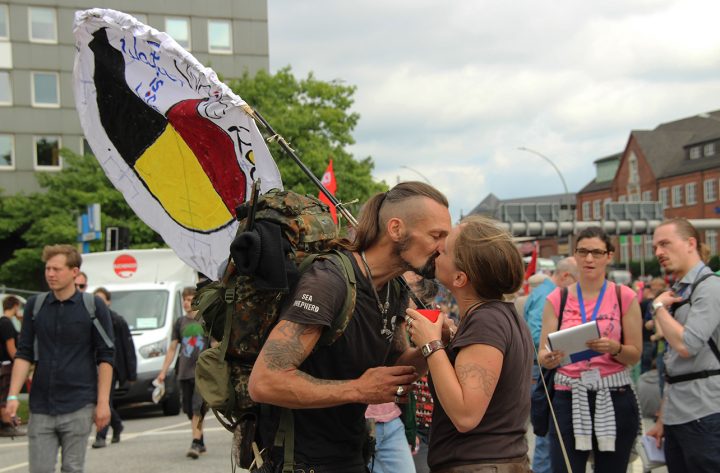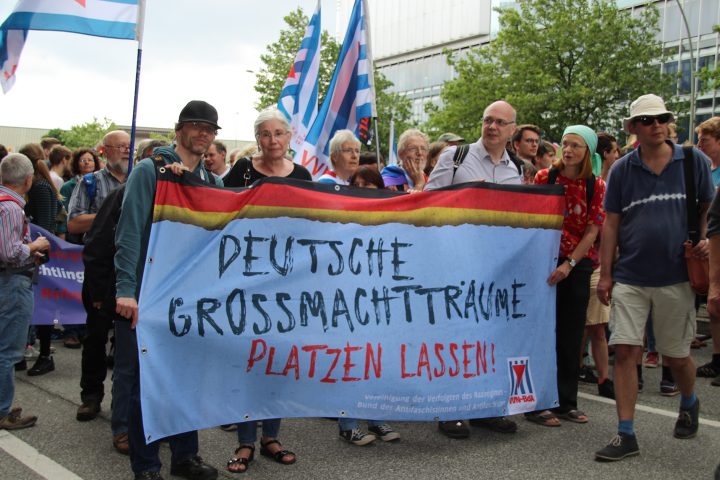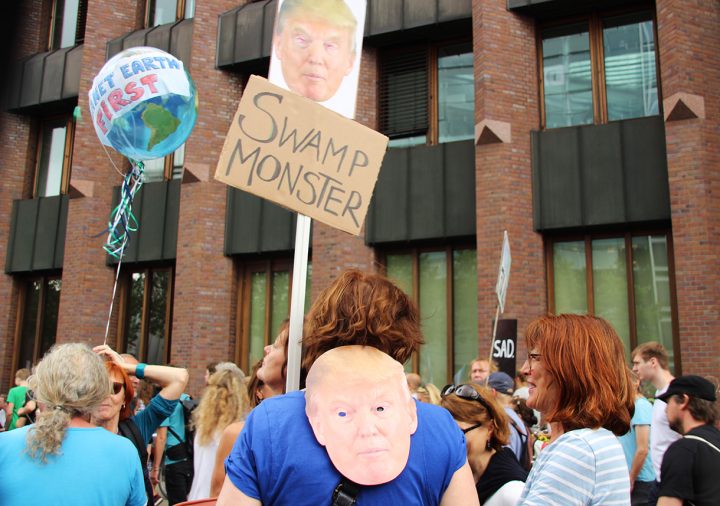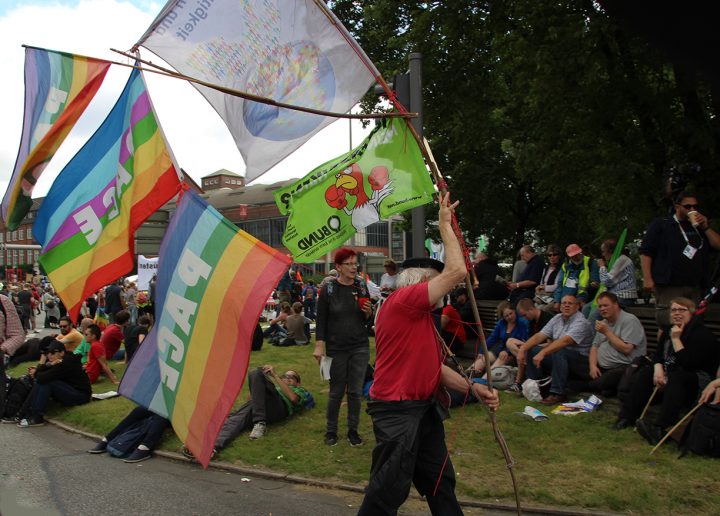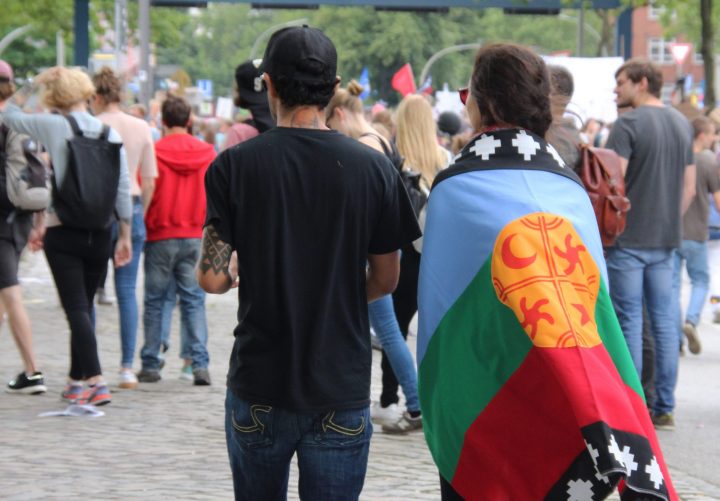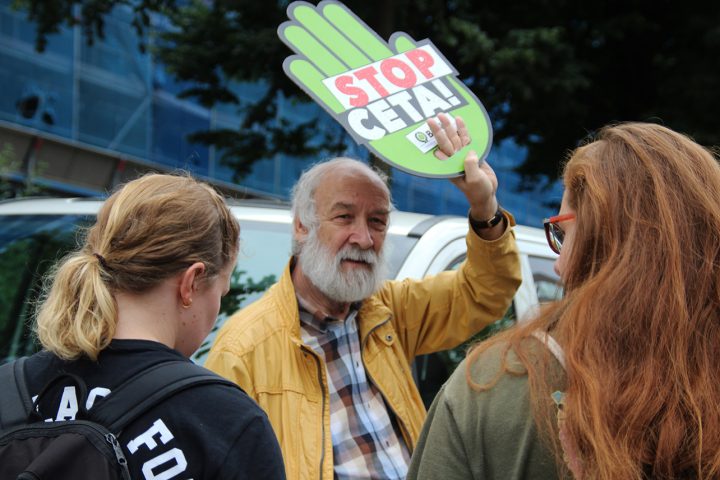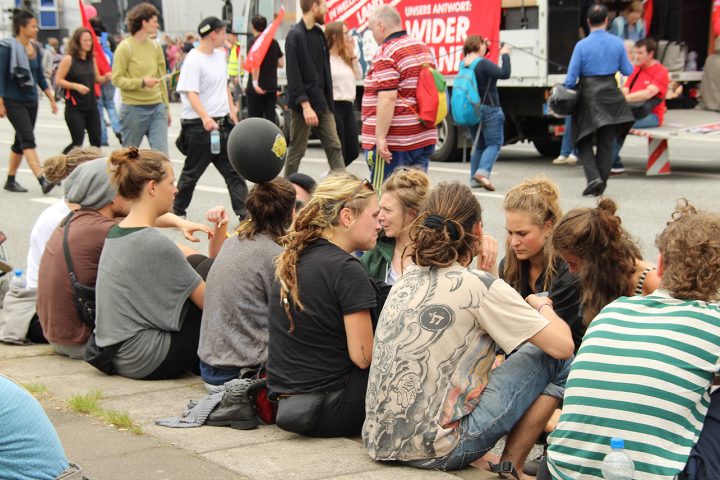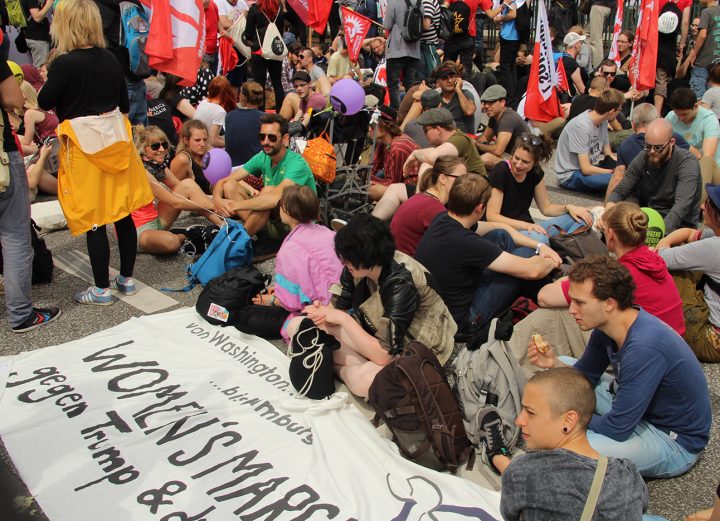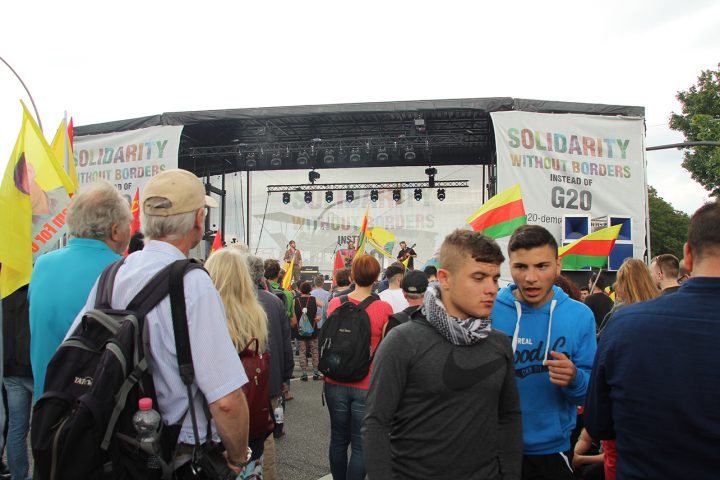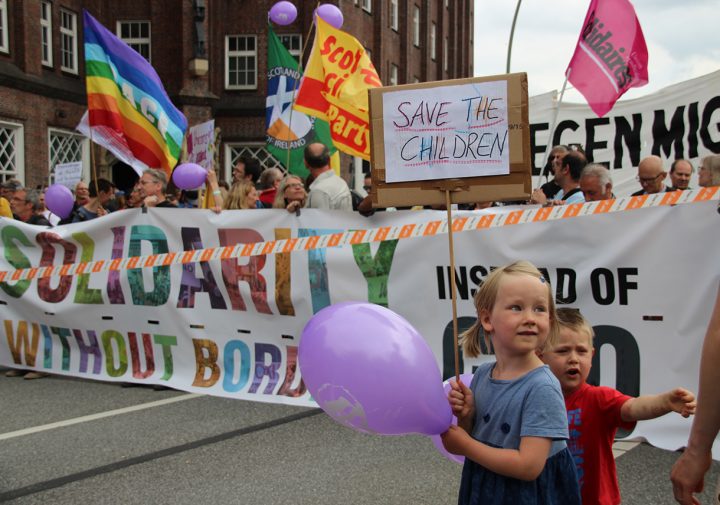With a very colourful and peaceful protest march of several tens of thousands, the protest days against the G20 summit in Hamburg ended. They were filled with numerous workshops, discussion rounds, art activities and an alternative summit with thousands of participants and important speakers from the fields of human rights, climate protection and peace politics. The message can be summarized as: A more peaceful, fair and sustainable world is possible. But almost nobody in the final demonstration has any trust that the leaders of G20 can or want to achieve that.
Maybe some people did not turn up because of the violent outbursts in recent days, but others came just because of them. “To stand up against violence”, Marit and Sibel from Hamburg told me. The violence is an issue and everybody we asked spoke out clearly against it. It does not serve the purpose of representing their proposals. Who was first perpetrating and who was reacting? There are many opinions. In the end it was primarly the violence that the mass media reported on, while the positive energy, the constructive proposals and the exuberant creativity were sidelined facts.
We asked about people’s motivation to demonstrate. Stefan from Berlin said that he wasn’t opposing so much the meeting of the G20 before he came here. But during the discussions of the previous days it became more obvious for him that our system needs to be modified: “Our political system is too hierarchical. There is no space for experiments. New forms could be tested at a local level. Values like empathy and sustainability must be promoted.” His friend Florian, on the contrary, regards the G20 as an anachronism: “There is a feeling of solidarity between the people which the system is no longer compatible with.” Fanny from Youth against G20 talked about “domestication of the children” in the education system in order to become a functioning part of the system. She demands: “humanity and solidarity instead of profit-driven and competiton thinking. It is the isolation by the capitalist system that separates us.”
A feeling of inevitable change moved most of the participants. They hope to direct the change in a positive direction because “we know that the positive exists”, as Tibi and Thomas of the Interventionistic Left said. And indeed, the march was full of small or bigger projects where peaceful coexistence, nonviolent conflict resolution, alternative lifestyles, sustainability and solidarity with all people on the planet are already working. Unfortunately also after this summit, the feeling remains that the majority of the population will not learn about them because they don’t find space in the big media.
Pictures by Magaly Navarrete
